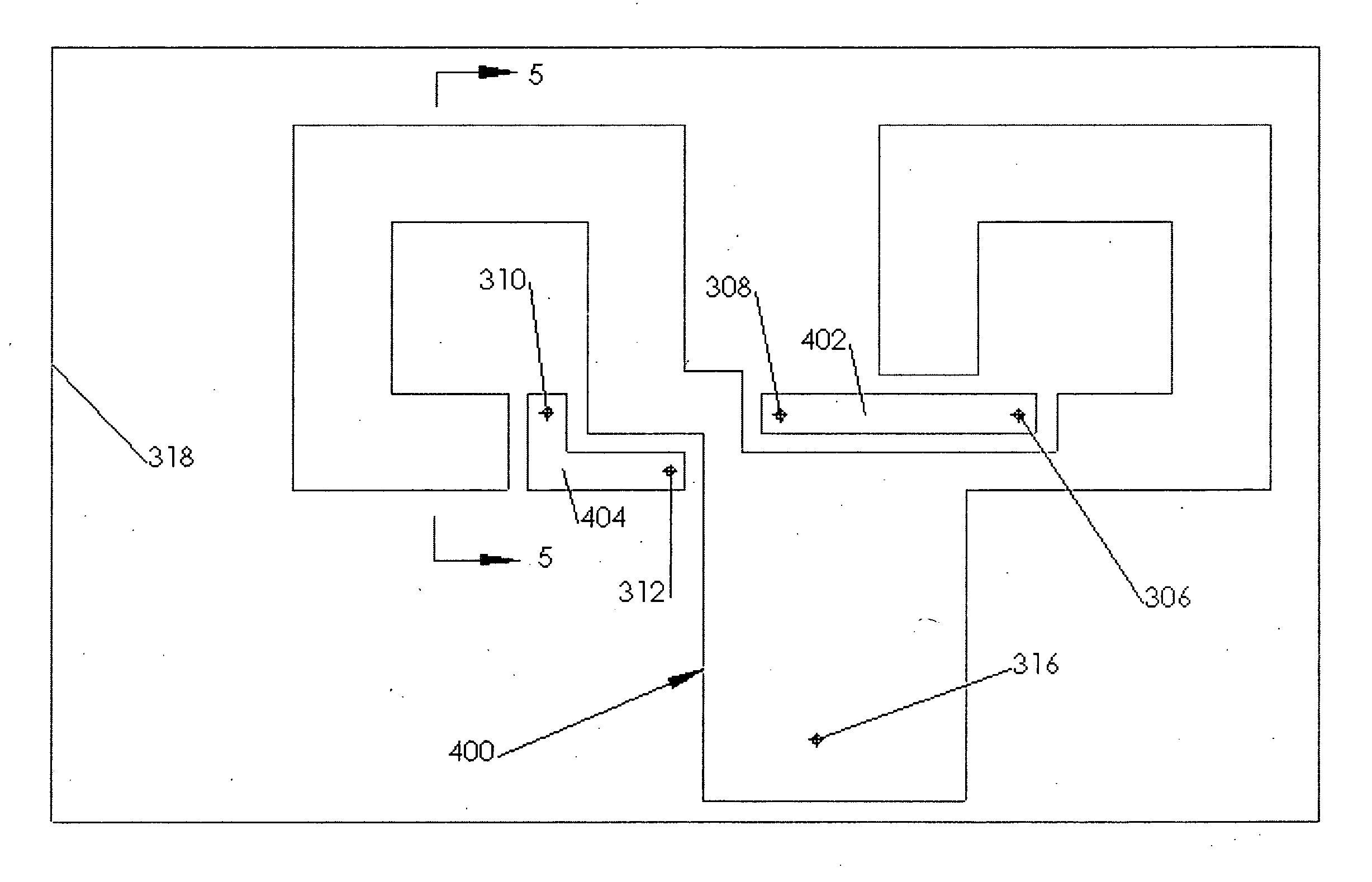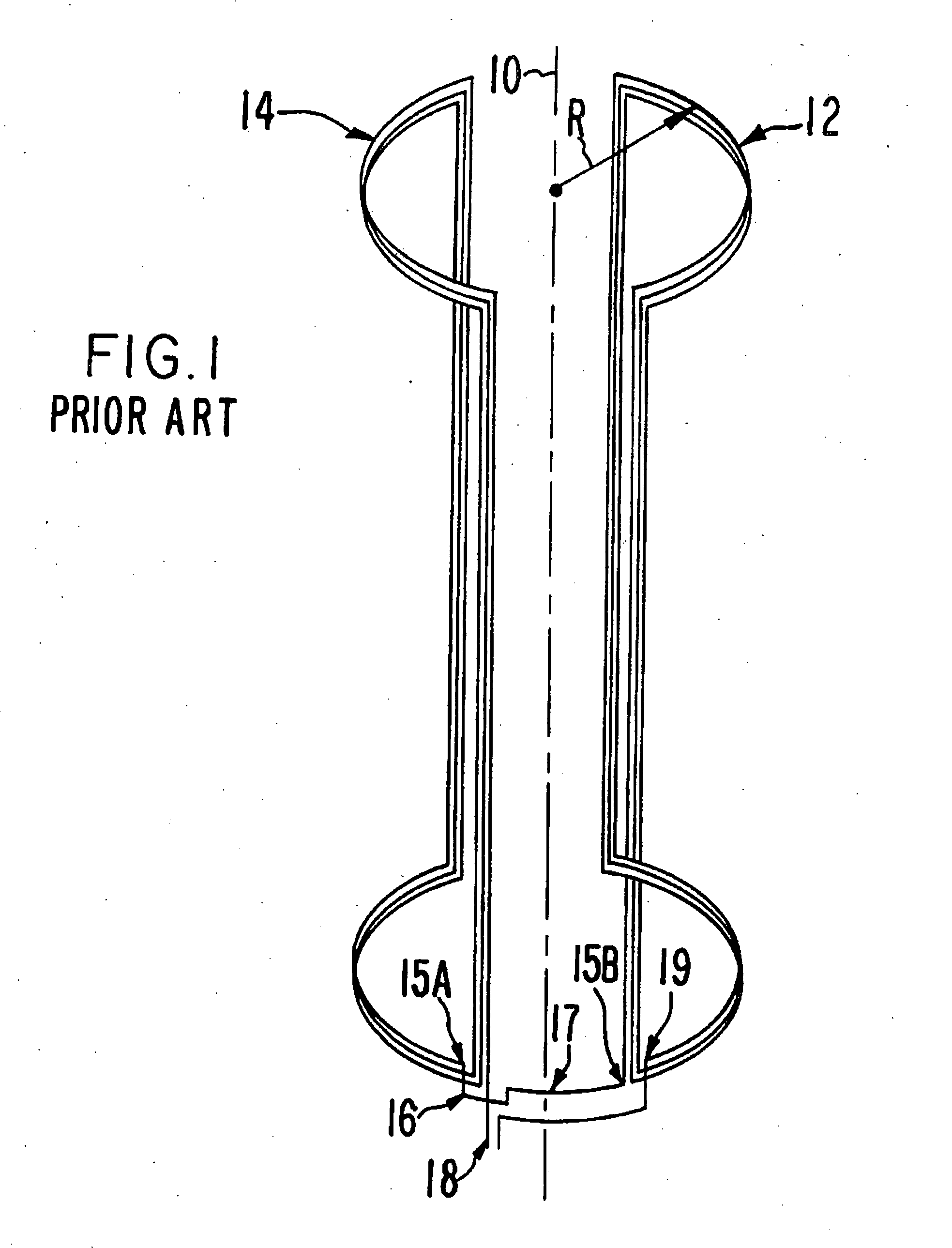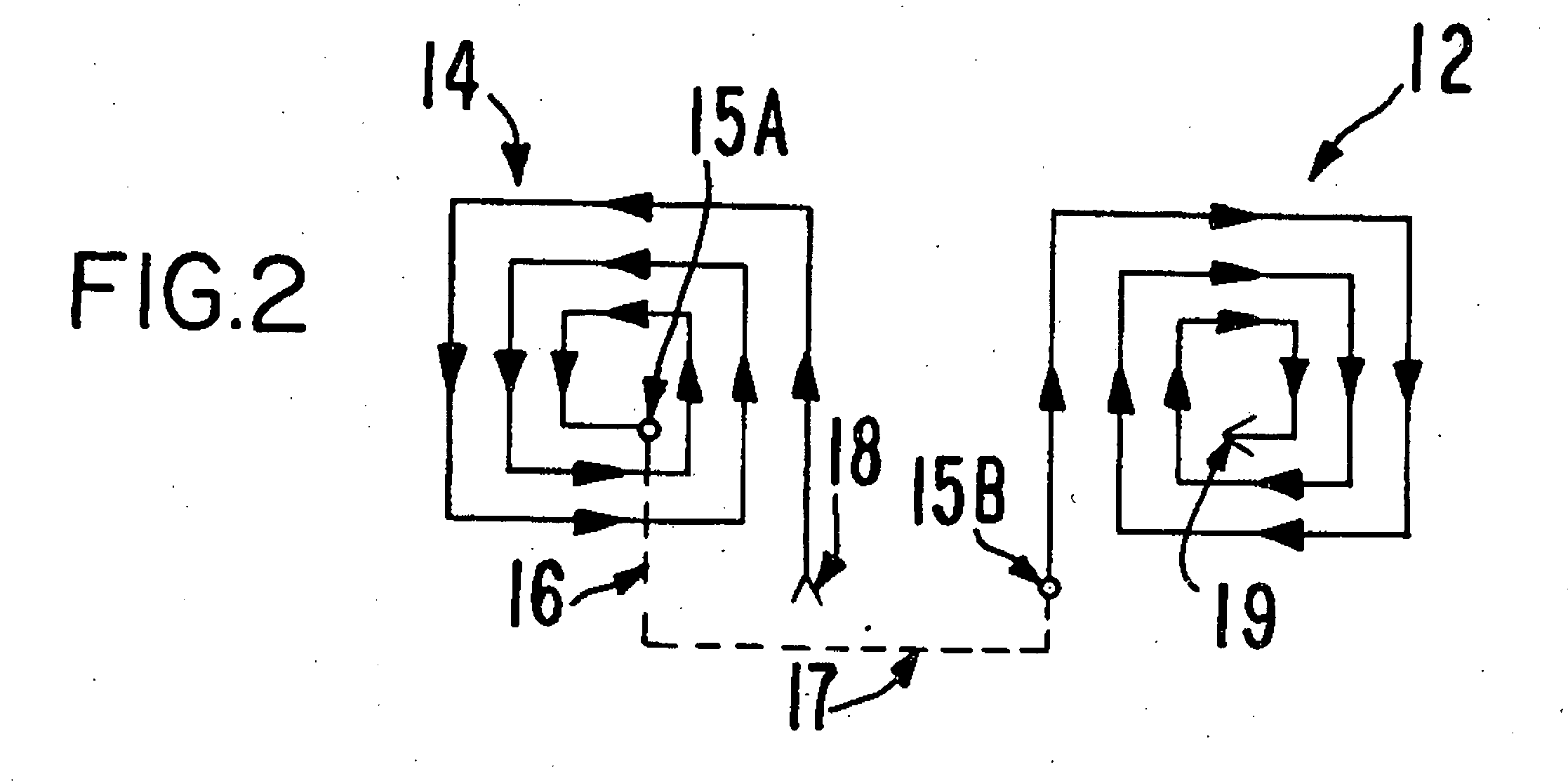Transmission line probe for nmr
a transmission line and probe technology, applied in the field of nmr probes, can solve the problems of limiting the range of magnetic fields and/or nuclear species to which a conventional probe is sensitive without, and affecting the detection effect of conventional probes
- Summary
- Abstract
- Description
- Claims
- Application Information
AI Technical Summary
Problems solved by technology
Method used
Image
Examples
Embodiment Construction
[0029]Detailed descriptions of the preferred embodiment are provided herein. It is to be understood, however, that the present invention may be embodied in various forms. Therefore, specific details disclosed herein are not to be interpreted as limiting, but rather as a basis for the claims and as a representative basis for teaching one skilled in the art to employ the present invention in virtually any appropriately detailed system, structure or manner.
[0030]A prior art saddle coil of radius R is shown in FIG. 1. Two square spiral wound coil portions 12 and 14, of opposite helicities, are symmetrically arranged about an axis 10 to define a cylindrical volume there between. The inner terminal 15a of winding portion 14 must bridge at 16 windings of portion 14 to connect through connecting link 17 to the outer terminal 15b of portion 12. Terminals 18 and 19 are the external terminals of the series combination forming the complete saddle coil. For convenience, this prior art arrangemen...
PUM
 Login to View More
Login to View More Abstract
Description
Claims
Application Information
 Login to View More
Login to View More - R&D
- Intellectual Property
- Life Sciences
- Materials
- Tech Scout
- Unparalleled Data Quality
- Higher Quality Content
- 60% Fewer Hallucinations
Browse by: Latest US Patents, China's latest patents, Technical Efficacy Thesaurus, Application Domain, Technology Topic, Popular Technical Reports.
© 2025 PatSnap. All rights reserved.Legal|Privacy policy|Modern Slavery Act Transparency Statement|Sitemap|About US| Contact US: help@patsnap.com



